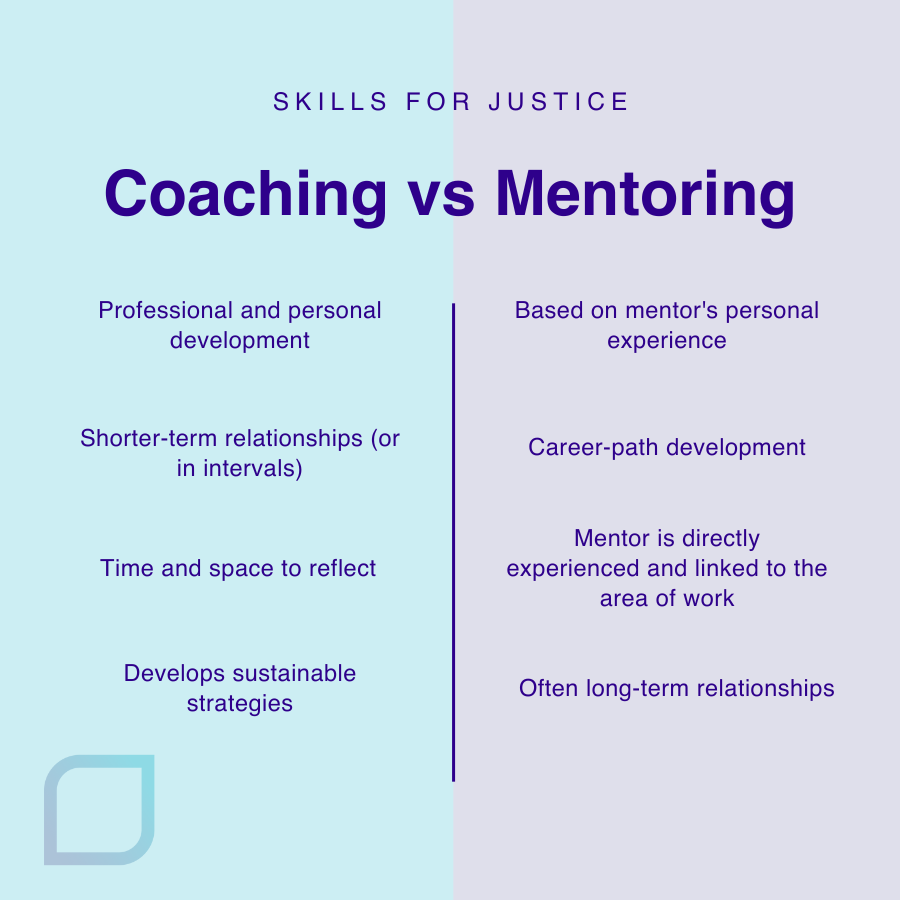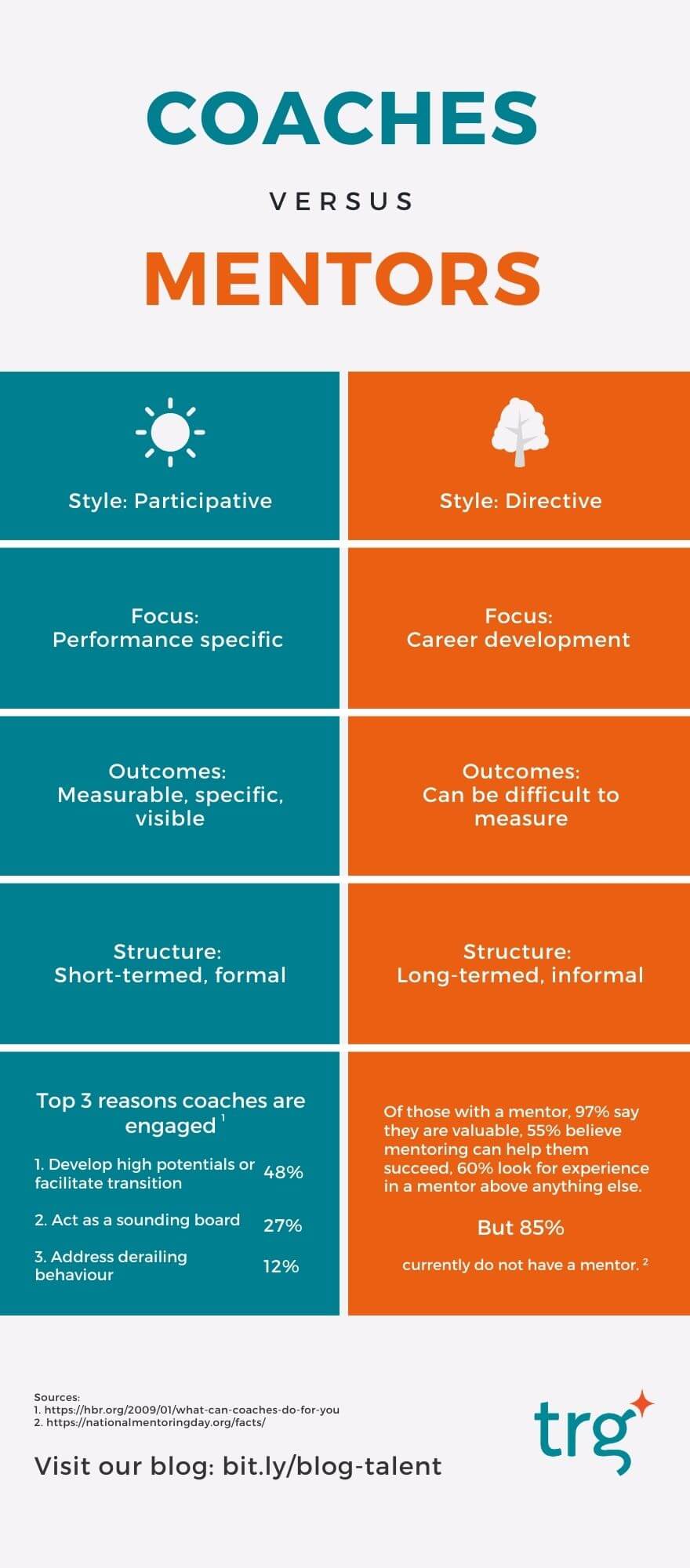Coaching and Mentoring: Unlocking Potential for Personal and Professional Growth
Coaching and mentoring are vital components in the journey of personal and professional development. While both practices aim to enhance individual capabilities, they do so through different approaches and methodologies. This article delves into the nuances of coaching and mentoring, examining their distinct characteristics, benefits, effective techniques, and common challenges.

Understanding Coaching and Mentoring
What is Coaching?
Coaching is a goal-oriented process where a trained individual, known as a coach, assists another person in reaching specific objectives or improving performance. This relationship is often short-term and highly focused on the development of specific skills. Coaches use various techniques to foster self-discovery and accountability, guiding clients through challenges while helping them unlock their potential.
- Key Characteristics of Coaching:
- Structured: Coaching sessions often follow a set framework or methodology.
- Time-bound: Typically lasts for a specific duration, targeting particular goals.
- Performance-driven: Focuses on improving performance, enhancing skills, and achieving measurable outcomes.
What is Mentoring?
Mentoring, in contrast, involves a more experienced individual (the mentor) providing guidance, advice, and support to a less experienced individual (the mentee). This relationship is usually more informal and can extend over a longer period. Mentoring emphasizes personal growth, professional development, and the transfer of knowledge and experience.
- Key Characteristics of Mentoring:
- Long-term: Often a more extended relationship that evolves over time.
- Holistic approach: Addresses overall growth, including personal and professional aspects.
- Knowledge sharing: Focuses on sharing experiences and insights to guide the mentee.
Key Differences Between Coaching and Mentoring
Understanding the distinctions between coaching and mentoring is crucial for choosing the right approach for your development needs. Here are some of the primary differences:
| Aspect | Coaching | Mentoring |
|---|---|---|
| Duration | Short-term, often time-limited | Long-term, ongoing relationship |
| Focus | Specific skills and performance | Overall development and knowledge transfer |
| Structure | More structured and formal | More informal and flexible |
| Relationship | Coach-client dynamic | Mentor-mentee relationship |
| Goal orientation | Goal-specific | Holistic personal and professional growth |
For a more visual representation, check out this infographic:  .
.
The Benefits of Coaching and Mentoring
For Individuals
Both coaching and mentoring offer numerous advantages for personal and professional development:
- Enhanced Skills: Individuals can develop specific competencies, whether through targeted coaching sessions or broader mentoring relationships.
- Increased Confidence: Support from a coach or mentor can significantly boost self-confidence, enabling individuals to take on new challenges.
- Networking Opportunities: Mentoring often provides access to a broader professional network, opening doors to new opportunities and connections.
For Organizations
Organizations also benefit from fostering a culture of coaching and mentoring:
- Improved Employee Performance: By investing in the development of their workforce, organizations can achieve higher levels of productivity and effectiveness.
- Talent Retention: Providing coaching and mentoring opportunities demonstrates a commitment to employee growth, which can lead to increased loyalty and reduced turnover.
- Stronger Leadership Pipeline: Mentoring programs, in particular, help to cultivate the next generation of leaders by nurturing talent within the organization.
Effective Coaching Techniques
Active Listening
Active listening is a cornerstone of effective coaching. Coaches should focus on understanding the client’s perspective fully before providing feedback or suggestions. This approach fosters a sense of trust and ensures that clients feel heard and valued.
Setting SMART Goals
SMART goals are Specific, Measurable, Achievable, Relevant, and Time-bound. By setting SMART goals, coaches help clients create clear and actionable plans that lead to tangible results.
Providing Constructive Feedback
Feedback is essential in the coaching process. Constructive feedback should be specific, actionable, and focused on improvement, enabling clients to learn and grow from their experiences.
Effective Mentoring Practices
Establishing Trust and Rapport
Building a strong foundation of trust and rapport is vital for effective mentoring. Mentors should create an open and safe environment where mentees feel comfortable sharing their thoughts, challenges, and aspirations.
Encouraging Self-Reflection and Growth
Mentors should encourage mentees to engage in self-reflection. This process helps mentees identify their strengths, weaknesses, and areas for improvement, fostering personal growth.
Developing a Mentorship Plan
A structured mentorship plan can help both mentors and mentees stay focused on their objectives. This plan should outline the goals of the mentorship, key milestones, and methods for tracking progress.
Challenges in Coaching and Mentoring
Despite the numerous benefits, both coaching and mentoring come with their own set of challenges:
Resistance to Change
Individuals may resist change due to fear of the unknown or discomfort with new ideas. Coaches and mentors must be prepared to address these concerns and guide individuals through the change process.
Time Constraints
Both coaches and mentors often face time constraints, making it difficult to dedicate the necessary time to coaching or mentoring sessions. Effective time management and prioritization are crucial for overcoming this challenge.
Defining Boundaries
Establishing clear boundaries is essential to maintain a professional relationship between coaches, mentors, and their clients or mentees. This ensures that expectations are clear and that both parties feel comfortable and respected.
FAQs on Coaching and Mentoring
What is the difference between a coach and a mentor?
A coach typically focuses on specific skills and performance within a set timeframe, while a mentor offers broader guidance and support over a longer duration, emphasizing personal and professional growth.
How can I find a good coach or mentor?
To find a suitable coach or mentor, consider networking within your industry, seeking recommendations, and researching professional organizations that specialize in coaching and mentoring.
What are some common coaching and mentoring models?
Several effective models exist, including the GROW model for coaching (Goal, Reality, Options, Will) and various mentoring frameworks that emphasize structured goal-setting and reflection.
By understanding the fundamentals of coaching and mentoring, individuals and organizations can unlock the potential for significant growth and development. Whether seeking a coach for targeted performance improvement or a mentor for holistic guidance, both pathways offer valuable opportunities for success.
The Future of Coaching and Mentoring
As we navigate the complexities of modern work environments, the roles of coaching and mentoring are becoming increasingly vital. With the rapid evolution of technology, globalization, and shifting workforce dynamics, organizations are recognizing the need for robust development frameworks that can adapt to these changes. Here are some trends shaping the future of coaching and mentoring:
Emphasis on Virtual Coaching and Mentoring
The rise of remote work has catalyzed the demand for virtual coaching and mentoring solutions. Digital platforms now facilitate effective coaching and mentoring relationships, allowing professionals to connect from anywhere in the world. This shift not only makes coaching and mentoring more accessible but also enables a broader exchange of ideas and experiences.
- Benefits of Virtual Coaching and Mentoring:
- Accessibility: Participants can engage without geographical limitations.
- Flexibility: Scheduling becomes easier, accommodating various time zones and personal commitments.
- Diverse Perspectives: Individuals can connect with mentors and coaches from different cultural backgrounds and industries.

Focus on Emotional Intelligence (EQ)
In today’s workplace, emotional intelligence (EQ) is a key component of effective leadership and team dynamics. Coaching and mentoring programs are increasingly integrating EQ training to help individuals develop better interpersonal skills, empathy, and self-awareness. This focus enables participants to navigate complex workplace relationships and contribute to a positive organizational culture.
- Key Components of Emotional Intelligence:
- Self-awareness: Understanding one’s emotions and their impact on others.
- Self-regulation: Managing one’s emotions in challenging situations.
- Social skills: Building and maintaining healthy relationships.
Increasing Demand for Diversity in Coaching and Mentoring
Organizations are recognizing the importance of diversity in their coaching and mentoring initiatives. Emphasizing diverse perspectives leads to richer discussions and more innovative solutions. Companies are now more proactive in ensuring that their coaching and mentoring programs are inclusive and reflect the diversity of their workforce.
- Strategies for Promoting Diversity:
- Inclusive selection processes for coaches and mentors.
- Targeted outreach to underrepresented groups.
- Cultural competency training for coaches and mentors.
Implementing Effective Coaching and Mentoring Programs
Creating a successful coaching and mentoring program requires careful planning and execution. Here are some steps to consider:
1. Define Objectives
Start by clearly defining the objectives of your coaching and mentoring program. Whether the focus is on skill development, leadership training, or career progression, having well-defined goals will guide the program’s structure and implementation.
2. Choose the Right Coaches and Mentors
Selecting the right individuals to serve as coaches and mentors is critical. Look for individuals who not only possess the necessary experience and skills but also demonstrate a genuine commitment to helping others succeed.
3. Provide Training and Resources
Equip coaches and mentors with the training and resources they need to be effective. This may include workshops on coaching techniques, mentoring best practices, and tools for tracking progress.
4. Establish a Feedback Mechanism
Regular feedback is essential for the success of coaching and mentoring relationships. Create a system for participants to provide feedback on their experiences, which can help refine and improve the program over time.
5. Evaluate Outcomes
Finally, assess the effectiveness of your coaching and mentoring program. Measure outcomes against the defined objectives to determine its impact on individual development and organizational performance.
FAQs on Coaching and Mentoring
What are the main goals of coaching and mentoring?
The primary goals of coaching and mentoring are to enhance individual skills and capabilities, foster personal and professional growth, and create a supportive environment that encourages learning and development.
How do I know if I need a coach or a mentor?
If you’re looking for specific skill development and performance improvement, a coach may be the best fit. If you’re seeking broader guidance and support in your career path, a mentor might be more appropriate.
Are there specific industries that benefit more from coaching and mentoring?
While coaching and mentoring are beneficial across all industries, sectors such as healthcare, technology, and education often have robust programs due to the need for continuous learning and adaptation.
Conclusion
In conclusion, coaching and mentoring are indispensable tools for personal and professional growth. As the landscape of work continues to evolve, embracing these practices can empower individuals and organizations to navigate challenges, unlock potential, and achieve lasting success. By investing in coaching and mentoring, you not only enhance your skills and knowledge but also contribute to a culture of growth and collaboration within your organization.
By prioritizing these development strategies, organizations can build a more resilient and capable workforce, prepared to meet the challenges of the future. Explore the opportunities that coaching and mentoring can bring to your personal and professional life, and take the first step towards unlocking your full potential.


